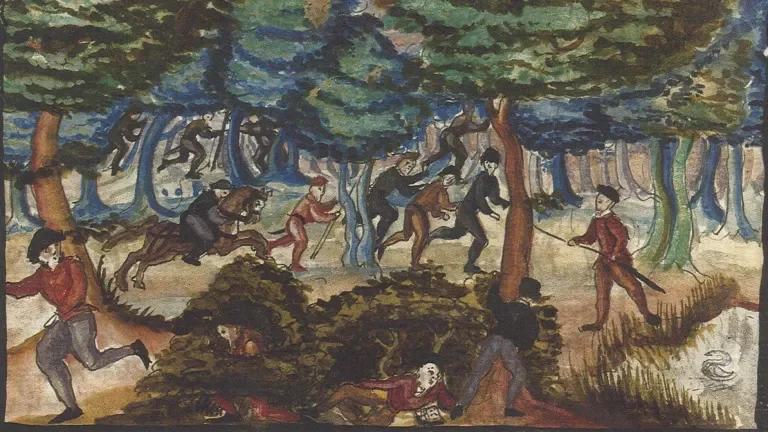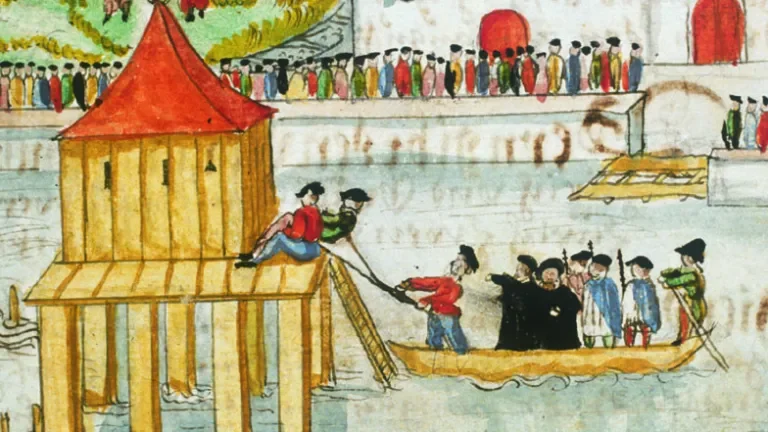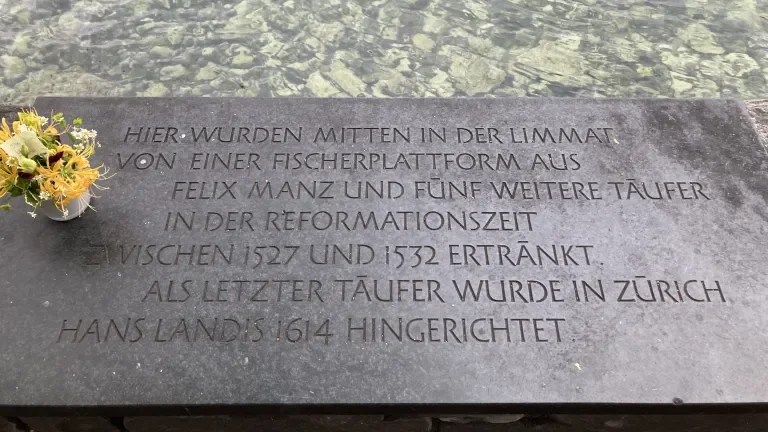On January 21, 1525, the first believers baptism took place at Felix Manz's house in Zurich. It was an act of resistance against the authorities, who had shortly before declared infant baptism compulsory by law.
In Zollikon - a village just outside Zurich - this meeting was followed by a revival among the local people - most of them from the lower peasant class with over 100 baptisms of men and women. They read the Bible together and celebrated communion "from house to house" - they called it "breaking bread". As "sisters and brothers in Christ", they wanted to be a binding community of believers who took serious the Sermon on the Mount. However, Zwingli and the Zurich Council did not tolerate this "separation". Persecution with the ban on assemblies and adult baptisms quickly put an end to this first independent free church community.
In May 1527, a few months after Felix Manz was drowned in the Limmat river, the bailiff of Grüningen surprised a gathering of Anabaptist believers in the forest (picture above). He arrested Jakob Falck and Heini Reimann and 13 other Anabaptists. Falck and Reimann were drowned in the Limmat on September 5, 1528 (picture below). However, the Anabaptist movement, whose first confession was formulated in Schleitheim in 1527, continued to spread and developed into an international network.
Professor Fritz Blanke carefully traced the history of the first Anabaptist congregation in 1955 based on historical sources in the book "Brethren in Christ" and summarized: "The village of Zollikon on Lake Zurich was the place where, within Protestant history, the first attempt was made to bring into being a Christian community independent of the state and resting on voluntary membership. Such an experiment was bound to fail in its first attempt, and the only 'mistake' of which we may accuse the men and women of Zollikon would be that they went at their task too early, before the time was ripe."
The Zurich Confession of 2004 takes up this story with the words:
"The Reformed Churches and the Anabaptist movement are all essentially branches on one and the same bough of the great Christian tree. Both are offsprings of the Reformation. Right from the start however they went their separate ways, so that a tragic rift ran through the Zurich Reformation, painful traces of which are discernable to this day. Executions, persecution and expulsions were carried out to eliminate the Anabaptist movement. Yet it has survived and is still flourishing today. The descendants of those early Anabaptists are a living testimony to this."


